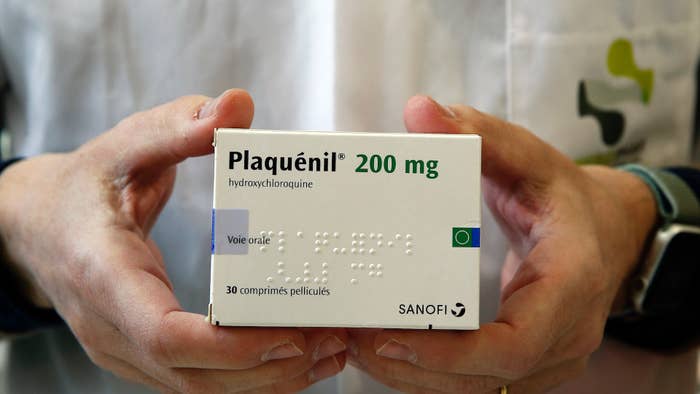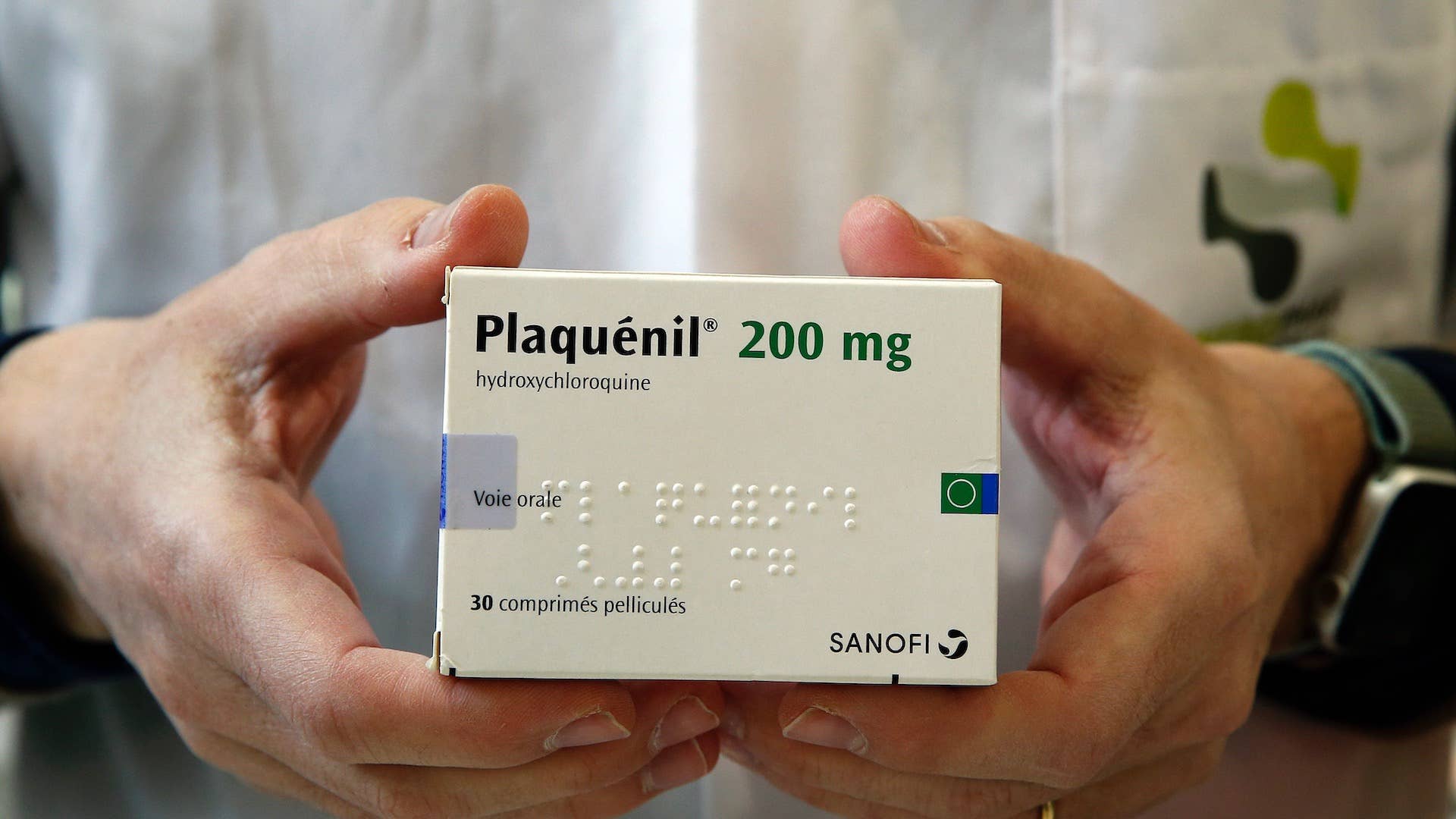
The coronavirus pandemic has left lupus patients without crucial medication.
Earlier this month, President Donald Trump touted hydroxychloroquine as a possible treatment for COVID-19, referring to it as a potential game-changer "in the history of medicine."
"It’s been around for a long time, so we know if things don’t go as planned it’s not going to kill anybody," POTUS said during a White House press briefing last week. "[Hydroxychloroquine has] shown very, very encouraging early results, and we’re going to be able to make that drug available almost immediately,” he said of the drug. And it’s shown very encouraging, very, very encouraging early results."
Hydroxychloroquine has been used to treat a number of ailments and diseases, including malaria attacks, rheumatoid arthritis, and, most commonly, systemic lupus erythematosus (SLE). Those who suffer from the latter use the drug, which is sold under the brand name Plaquenil, to protect their kidneys and heart as well as prevent flare-ups associated with the autoimmune disease. However, in the week since Trump hyped the drug as a potential COVID-19 treatment, many lupus patients have been unable to refill their Plaquenil prescriptions, leaving them with even more uncertainty and fear.
A 45-year-old woman with SLE told BuzzFeed News she recently learned that her hydroxychloroquine prescription had been denied due to the high demand for the drug. She pointed to a letter sent by Kaiser Permanente, which thanked her for "the sacrifice."
The letter, obtained by BuzzFeed, reads in part:
Due to the current COVID-19 pandemic there is a worldwide shortage of Plaquenil/hydroxychloroquine. We are therefore conserving the current supply for those who are critically ill with COVID-19 ... We are working very hard every day doing everything we can to find ways to replenish this medication as soon as possible ... Please do not contact your physician about an exception process to get a refill, as prescriptions will not be filled even if written by your physician. Hydroxychloroquine does build up a level in the system that stays in the body for an average of 40 days even after the last dose is taken. If you do run out of medication and feel your condition is significantly worsening, please contact your doctor to discuss alternative treatments. Thank you for the sacrifice you will be making for the sake of those that are critically ill; your sacrifice may actually save lifes."
"I am already immunocompromised, and not taking this medication with likely put me into a lupus flare, making serious complications from COVID more likely," said the woman, who asked to be identified by her first name Dale. "The fact that they thanked me for my 'sacrifice' is disturbing. I never agreed to sacrifice my health and possibly my life and cannot believe that I am being forced to do so."
A representative for Kaiser Permanente confirmed the health care provider was withholding the drug for the time being, telling BuzzFeed, "We are no longer refilling routine prescriptions to ensure we have adequate supply to care for our sickest patients."
Many health experts have called for large-scale testing to determine whether hydroxychloroquine is an effective drug to treat the deadly coronavirus. Dr. Anthony Stephen Fauci, a leading member of the White House Coronavirus Task Force, told reporters there is no solid evidence that hydroxychloroquine would be an effective therapy for COVID-19.
"The evidence that you’re talking about is anecdotal evidence," he said during a briefing last week. "As the commissioner of FDA and the president mentioned yesterday, we’re trying to strike a balance between making something with a potential of an effect to the American people available at the same time that we do it under the auspices of a protocol that would give us information to determine if it’s truly safe and truly effective. But, the information that you’re referring to specifically is anecdotal. It was not done in a controlled clinical trial, so you really can’t make any definitive statement about it."
An Arizona man died this week after ingesting a non-medical form of chloroquine phosphate that is used for fish tanks. The man's wife told NBC News she and her husband, both in their 60s, decided to drink the chemical because they believed it would protect them from coronavirus.
"I saw it sitting on the back shelf and thought, 'Hey, isn't that the stuff they're talking about on TV?'" said the woman, who had previously used the chemical to treat her koi fish. "We were afraid of getting sick."

